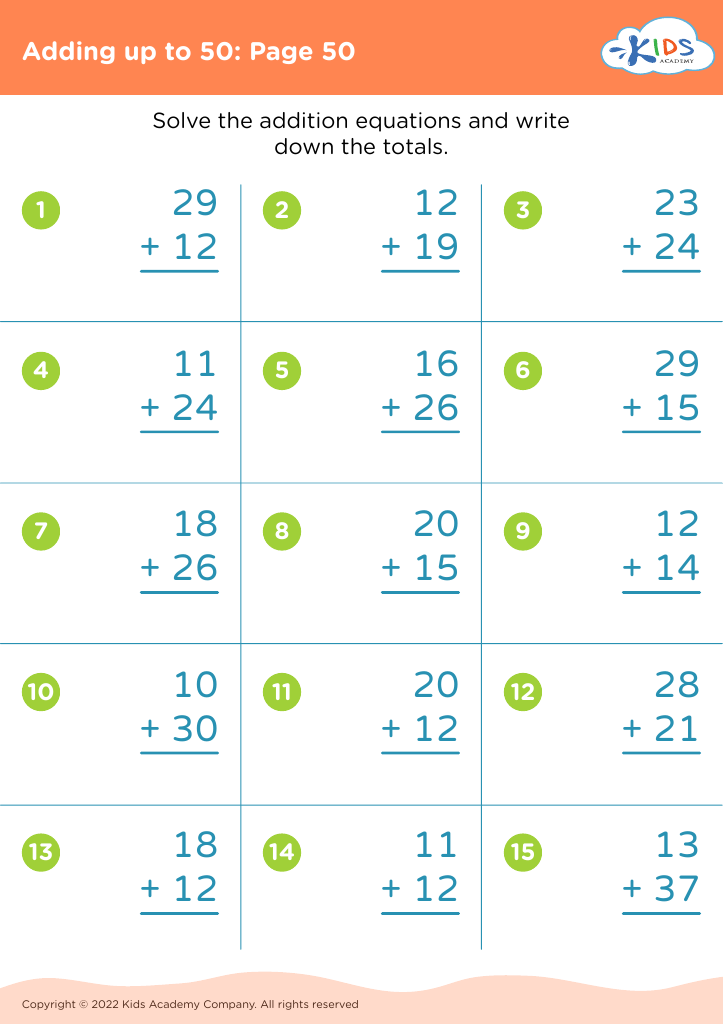Mathematical reasoning Adding up to 50 Worksheets for Ages 4-8
4 filtered results
-
From - To
Discover our engaging "Mathematical Reasoning Adding Up to 50 Worksheets," designed specifically for children aged 4 to 8! These worksheets offer fun and interactive ways for young learners to enhance their math skills through adding and understanding numbers up to 50. Each activity encourages logical thinking and problem-solving, helping kids develop their mathematical reasoning abilities in an enjoyable manner. The colorful designs and diverse exercises ensure that children stay motivated while mastering essential concepts. Ideal for home or classroom use, our worksheets provide the perfect tools for foundational math learning. Join the adventure in building confident young mathematicians!
Mathematical reasoning, especially concepts like "Adding up to 50," is essential for children aged 4 to 8 as it lays a foundation for critical thinking and problem-solving skills that extend beyond mathematics. During these formative years, kids begin to develop an understanding of numbers, the relationships between them, and how to manipulate these relationships for various purposes. Cumulatively learning to add up to 50 helps foster mental math abilities and strengthens number sense, aiding in calculations and estimations that children will rely on in daily life.
When parents and teachers prioritize mathematical reasoning, they not only enhance children's cognitive development but also promote perseverance and logical thinking. This skillset encourages a growth mindset, enabling children to tackle challenges with confidence. Additionally, mastering simpler concepts built around adding to 50 equips youngsters for future math topics, such as subtraction, multiplication, and fractions.
Moreover, a strong foundation in mathematical reasoning contributes to better performance in school and improves overall academic achievement. By nurturing this aspect of learning, parents and teachers can help cultivate a lifelong appreciation for mathematics, empowering children to approach future academic and real-world scenarios with confidence and enthusiasm.





















